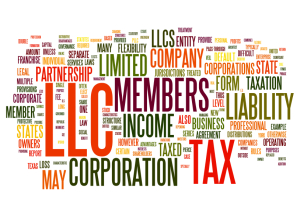At some point during the life of a limited liability company (LLC), the owners may decide that it is time to close the business. The process of closing a business is just as important as the process it took to create the LLC, because, among other things, the owner(s) need to provide notice to creditors and ensure that the LLC is beyond the reach of creditors. The formal process of closing your LLC is called “dissolution.” While there are many ways to dissolve an LLC, including involuntary dissolution, this article focuses on voluntary dissolution by the LLC’s member(s) and for those LLCs which were active in conducting business during its lifespan.
In order to voluntarily dissolve an LLC, the member(s) should first look to the company’s formational documents, which are the articles of organization and operating agreement. In the majority of cases, one of these two documents will contain procedures and/or rules for how to dissolve the company. In most cases, the procedure begins with a vote of the LLC members on a resolution to dissolve. It is important that any specific requirements regarding the voting of member(s) are followed, such as providing for when a meeting to vote should take place, whether any advance notice to the LLC’s members is required in preparation for the meeting, and what required percentage of members is needed to pass the vote.
 Business Lawyers Blog
Business Lawyers Blog












